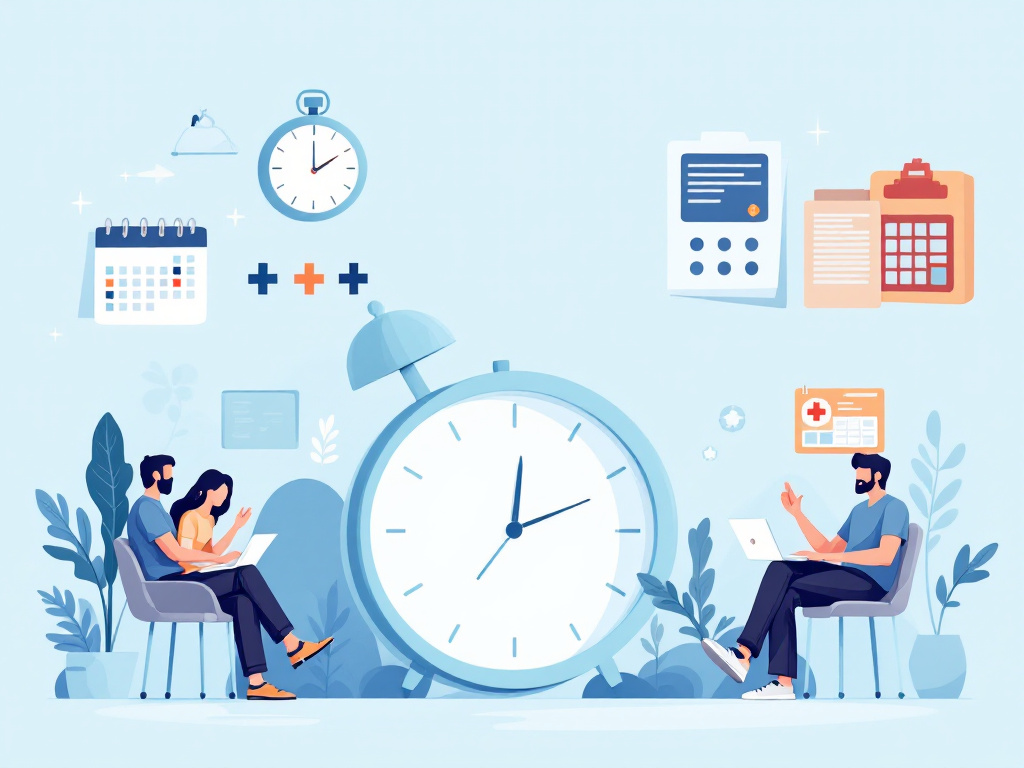Why Choose Recovery Bay Center
Recovery Bay Center is dedicated to providing tailored and effective addiction treatment through a comprehensive approach. We recognize that individuals seeking recovery may have unique needs that require specialized care.
Comprehensive Care Offered
At Recovery Bay Center, we offer a full spectrum of services designed to support individuals through every stage of their recovery journey. Our programs include medically assisted treatment, comprehensive detox services, and various therapy options such as cognitive behavioral therapy. Our aim is to ensure that each client receives the holistic care they need for successful long-term recovery.
Here is a summary of some essential services we provide:
| Service | Description |
|---|---|
| Medical Detox | Supervised detoxification with medical support. medical detox |
| Individual Therapy | One-on-one sessions to address personal triggers and develop coping strategies. individual therapy addiction |
| Dual Diagnosis Treatment | Treatment for co-occurring mental health conditions alongside addiction. dual diagnosis treatment |
| Group Programs | Peer support through structured group therapy sessions. group program addiction |
| Family Programs | Involvement of family in the recovery process to strengthen support. family program addiction |
Specialist vs Therapist
In our center, we understand the distinction between therapists and licensed substance abuse counselors. Licensed substance abuse counselors specialize in treating substance use disorders, while therapists focus on mental health conditions. Some professionals are cross-licensed, allowing them to address both areas of concern. This expertise can significantly impact treatment effectiveness, particularly in cases where addiction and mental health issues intersect (OpenCounseling).
Individual therapy plays a crucial role in our addiction recovery program. It allows clients to explore their personal experiences and specific triggers in a private setting. This individualized approach helps develop coping mechanisms, addresses underlying issues like trauma or anxiety, and facilitates a deeper understanding of addiction’s causes.
By choosing Recovery Bay Center, individuals gain access to specialists equipped to guide them through the recovery process, ensuring comprehensive and personalized support at every turn. We encourage you to explore our various treatment options to find the most suitable pathway for recovery.
Importance of Individual Therapy
Individual therapy plays a critical role in the journey of addiction recovery. It offers a personalized approach that accommodates each person’s unique challenges and needs, contributing significantly to effective treatment outcomes.
Role in Addiction Recovery
In individual therapy, we can explore the underlying causes of addiction. This therapeutic setting allows us to delve into personal experiences and specific triggers that contribute to substance use. Techniques such as Cognitive-Behavioral Therapy (CBT), motivational interviewing, and contingency management help individuals acquire the necessary skills to navigate life without drugs or alcohol (American Addiction Centers).
The effectiveness of individual therapy is evidenced by the statistic that approximately 42% of individuals entering substance use treatment in the U.S. participate in individual counseling (Olympic Behavioral Health). The one-on-one sessions enable us to develop tailored coping strategies, addressing not only addiction itself but also any underlying issues such as trauma or anxiety.
| Therapy Type | Efficacy Rate |
|---|---|
| Cognitive Behavioral Therapy | 79% |
Co-Occurring Mental Health Conditions
An additional advantage of individual therapy is its ability to address co-occurring mental health conditions. Many individuals struggling with substance use disorder also experience disorders such as depression, anxiety, or bipolar disorder. Individual therapy provides a safe space to tackle these complex interrelations, which is crucial for recovery.
It allows therapists to create a holistic treatment plan that addresses both addiction and mental health, promoting a more comprehensive approach. Engaging in focused individual therapy helps individuals reconnect with their emotions and environments, contributing to sustained recovery and mental well-being. For those considering comprehensive treatment options, individual therapy remains an essential component of the recovery process.
In conjunction with our various services, such as dual diagnosis treatment and rehabilitation programs, individual therapy is vital in creating a supportive framework necessary for long-term recovery.
Types of Individual Therapy
In our journey toward recovery, we recognize the importance of individual therapy as a powerful tool for those struggling with addiction. Various therapeutic approaches can be employed to address the unique needs of each individual. Here, we outline three significant types of individual therapy commonly utilized in addiction treatment: Cognitive-Behavioral Therapy (CBT), Motivational Interviewing (MI), and Dialectical Behavior Therapy (DBT).
Cognitive-Behavioral Therapy (CBT)
Cognitive-Behavioral Therapy (CBT) is a structured approach that focuses on reshaping negative thought patterns and behaviors associated with addiction. We engage clients in one-on-one sessions with a mental health counselor to address these issues, empowering them to develop coping strategies for life’s challenges. CBT has proven effective in treating substance use disorders, with approximately 60% of individuals maintaining their recovery for a year or longer.
Some key features of CBT include:
- Targeted interventions focused on changing thought patterns
- Use of techniques such as relapse prevention and contingency management
- Application of both individual and group formats for broader impact
Motivational Interviewing (MI)
Motivational Interviewing (MI) is an approach designed to help individuals navigate ambivalence towards changing their substance use behaviors. This conversational method can be applied in both individual and group settings, making it a flexible option for our clients. Research indicates that MI has shown moderate effectiveness for drug use compared to no-treatment groups.
Through MI, we help clients:
- Explore their motivations for change
- Identify personal goals and values related to sobriety
- Develop a plan for achieving these goals
Dialectical Behavior Therapy (DBT)
Dialectical Behavior Therapy (DBT) is an adaptation of CBT that emphasizes behavioral skill development. It is particularly effective for clients dealing with co-occurring mental health conditions alongside addiction. DBT combines individual therapy with group education to enhance skills in four key areas: emotion regulation, distress tolerance, interpersonal effectiveness, and mindfulness.
DBT serves individuals by:
- Fostering self-awareness and emotional regulation
- Offering practical skills to manage stress and improve interpersonal relationships
- Encouraging acceptance and change in the context of their challenges
Utilizing these individual therapy techniques, we at the Recovery Bay Center are committed to providing the highest quality comprehensive drug and mental health care, tailored to our clients’ needs and circumstances. For additional information, consider reading our articles on dual diagnosis treatment and other therapy options like cognitive behavioral therapy and dialectical behavior therapy.
Benefits of Individual Therapy
Individual therapy offers numerous advantages for those seeking recovery from addiction. At Recovery Bay Center, we understand the importance of personalized care in our approach to treatment.
Personalized Support
One of the primary benefits of individual therapy is the personalized support it provides. Through one-on-one sessions, clients receive tailored attention, which allows for an in-depth exploration of their personal experiences and specific triggers. This personalized approach is essential for developing an individualized recovery plan that addresses unique needs and challenges.
In these sessions, we work closely with clients to build a supportive rapport, fostering an environment where they feel safe to share their struggles. This level of intimacy and understanding is often difficult to achieve in group settings, making individual therapy a crucial component of effective addiction treatment.
Developing Coping Strategies
Individual therapy is instrumental in helping clients develop practical coping strategies to handle stressors and cravings. Through various therapeutic techniques, such as cognitive-behavioral therapy, clients learn to identify negative thought patterns and replace them with healthier behaviors. This equips individuals with the tools necessary to navigate the challenges of addiction recovery.
Additionally, clients are encouraged to build a support network, set achievable goals for recovery, and make lifestyle changes that promote long-term sobriety. With our experienced therapists guiding this process, individuals can feel more prepared to face the difficulties that come with recovery.
Addressing Underlying Issues
Individual therapy also focuses on addressing underlying issues that may contribute to addiction. Many individuals struggle with co-occurring mental health conditions, such as anxiety or depression, which can exacerbate their substance use. By exploring these conditions in a safe and supportive space, clients can gain a deeper understanding of themselves and the factors that led to their addiction (Rehab Clinics Group).
Therapists at Recovery Bay Center work to help clients navigate these complex emotions and traumas, tailoring treatment methods to facilitate healing. This holistic approach is crucial for sustainable recovery, ensuring that individuals are not only treating their addiction but also focusing on their overall mental health.
The benefits of individual therapy for addiction are clear. By providing personalized support, developing coping mechanisms, and addressing underlying issues, we empower our clients on their journey to recovery. For more information about our treatment programs, including options like medical detox and residential addiction treatment, please explore our resources.
Individual vs Group Therapy
Effectiveness in Treatment
When considering treatment options for addiction, both individual and group therapies offer unique benefits. Research indicates that each therapy can effectively address substance use disorders and co-occurring mental health issues. The choice between them depends on individual preferences and needs (American Addiction Centers).
| Therapy Type | Effectiveness |
|---|---|
| Individual Therapy | Provides personalized exploration of personal issues and tools for coping |
| Group Therapy | Fosters peer support and shared experiences, enhancing commitment to recovery |
Some studies suggest that group therapy might be even more beneficial in certain situations. Clients participating in group settings often show a higher commitment to maintaining abstinence while also gaining insights from others facing similar challenges.
Combination Approach
Many clients find that a blended approach of both individual and group therapy offers the most comprehensive support during their recovery journey. This combination allows individuals to gain the benefits of personalized attention and therapy tailored to their unique experiences, while also engaging in group sessions for peer support and shared understanding.
The structure of group therapy can bolster social skills and foster connections with others who understand their struggles. Meanwhile, individual therapy provides a safe space to delve into personal issues, trauma, and tailored coping strategies, allowing for a well-rounded treatment experience. This dynamic can significantly enhance an individual’s chances of successful recovery.
For those interested in exploring therapy options, it’s essential to consider what resonates best with them. We recommend discussing preferences with our specialists at Recovery Bay Center to determine the most suitable pathway for recovery. For more information, you can learn about our programs in dual diagnosis treatment and residential addiction treatment.
Cost and Accessibility
Financial Considerations
When considering individual therapy for addiction, it’s crucial to take into account the financial aspects. In Palm Beach, Florida, the cost of individual therapy sessions ranges from $100 to $250. These rates can vary based on factors such as the therapist’s experience and area of specialization. For many individuals seeking help, these costs can be a hurdle, limiting access to vital recovery resources.
A comprehensive treatment approach at Recovery Bay Center does take into consideration the financial investments required. While costs associated with addiction therapy may seem high, research shows that the benefits of investing in substance abuse treatment can yield substantial returns. Specifically, the returns can be about three to seven times the initial investment within three years, benefitting not only individuals but also employers and health insurers (NCBI Bookshelf).
| Type of Therapy | Cost Per Session |
|---|---|
| Individual Therapy | $100 – $250 |
| Group Therapy | Generally lower cost |
Access to Care Constraints
Access to care is another significant factor in the pursuit of individual therapy for addiction. Despite the availability of programs, various barriers can impede individuals from receiving the treatment they need. Geographic location, availability of licensed therapists, and varying levels of health insurance coverage can all play a role in limiting access.
It’s important to note that while approximately 42% of individuals entering substance use treatment in the U.S. engage in individual counseling, there remains a substantial portion who do not, often due to access constraints.
By choosing Recovery Bay Center, we aim to mitigate these challenges by providing a comprehensive care model that emphasizes individualized treatment for every client. This approach not only addresses the immediate costs but also helps navigate the complexities of accessing quality care. Our aim is to offer options such as residential addiction treatment or inpatient drug rehab that can help facilitate a smoother access to the resources clients need for their recovery journey.





